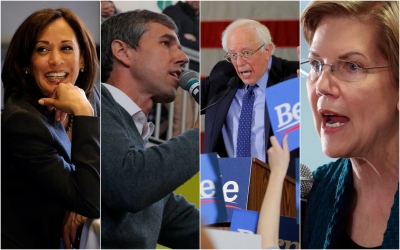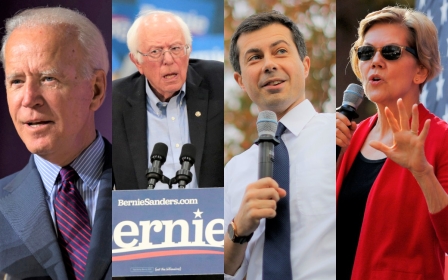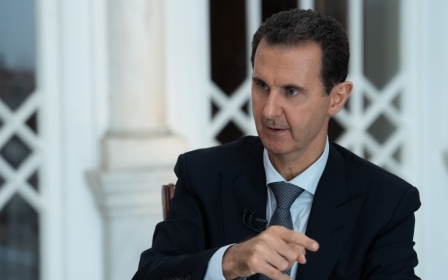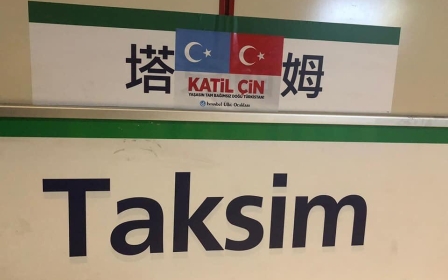Palestine, Khashoggi, Assad: Democratic hopefuls stake out stances on Middle East
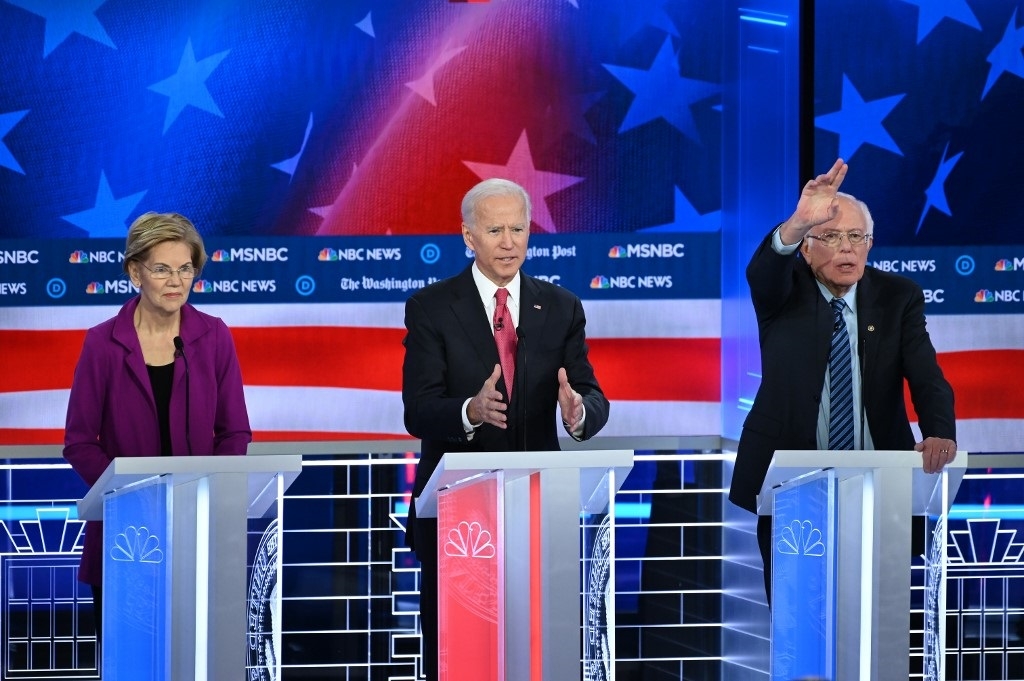
Democratic presidential hopefuls said they would punish Saudi Arabia over Jamal Khashoggi’s murder, stand by the Kurds and call out China over Uighur “concentration camps” as they drew a line between their proposed policies and the Trump administration’s in Wednesday night’s debate.
There were also occasional tussles over the Middle East, as ten of the 17 candidates fielded questions in Atlanta from the first-ever all-female moderator panel, the fifth debate leading up to July 2020 when the party’s nominee will be decided.
And in yet another reflection of the attitude shift within the party towards the Israeli-Palestinian conflict, calls from Bernie Sanders for treating the Palestinian people with “respect and dignity” were greeted by cheers from the audience.
“It is no longer good enough for us simply to be pro-Israel,” the Vermont senator said. “I am pro-Israel, but we must treat the Palestinians with the respect and dignity they deserve.”
He added: “What is going on with Gaza right now with youth unemployment at 70 or 80 percent is unsustainable.”
Both former Vice President Joe Biden and Senator Amy Klobuchar said they would have been much tougher on Saudi Arabia than the Trump administration has been following Khashoggi's killing, which the CIA concluded was ordered by Saudi Crown Prince Mohammed bin Salman.
"I would make it very clear we are not going to, in fact, sell more weapons to them," Biden said. "We are going to, in fact, make them pay the price and make them, in fact, the pariah that they are. There is very little social redeeming value in the present government in Saudi Arabia.
"I would end the subsidies that we have, end the sale of material to the Saudis where they are going in and murdering children and they are murdering innocent people. They have to held accountable."
The US, Biden added, should also be going to the UN to seek condemnationa of China over millions of Uighurs who "are essentially in concentration camps" in the west of the country. "We have to speak out and speak out loudly about the violation of human rights," he said.
Klobuchar said: "When the president did not stand up the way he should have to that killing and that dismemberment of a journalist with an American newspaper, that sent a signal to all dictators across the world that that was ok, and that’s wrong."
Sanders said he had made it clear that Saudi Arabia "does everything it can to crush democracy", treats women as third class citizens and is not a reliable US ally.
"We have got to bring Iran and Saudi Arabia together, in a room, under American leadership and say we are sick and tired of us spending huge amounts of money and human resources because of your conflict," he said.
Getting punked, staying loyal
Senator Kamala Harris, declaring that Trump “got punked” and “traded a photo op for nothing” when he met with North Korean leader Kim Jong Un in June, warned that his foreign policy conduct was “borne from a fragile ego” and had only made the country more vulnerable.
Securing the US, she said, not only meant having a vibrant military, but also being consistent and loyal with its allies, like the Kurds whom the US relied on for five years to fight the Islamic State group in Syria.
But that changed abruptly last month when Trump ordered the withdrawal of US troops from northeast Syria, saying he was getting the US out of “endless wars”- and essentially greenlighting Turkey’s offensive in the area.
“What Donald Trump has done – from pulling out of the Paris Agreement, to pulling out of the Iran nuclear deal, to consistently turning a back on people who have stood with us in difficult times, including most recently the Kurds, points out that he is the greatest threat to the national security of our nation at this moment,” she said.
That meeting with 'Bah-shur'
Rep Tulsi Gabbard and South Bend Mayor Pete Buttigieg had a colourful exchange over the Syrian president whom Gabbard met in January 2017 – and whom both refer to as “Bah-shur” al-Assad, which is slightly puzzling, at least for the mayor, given his fluency in Arabic.
Gabbard said Buttigieg had shown “his inexperience in national security” by telling a journalist that he would send American troops to fight cartels in Mexico.
Saying she had taken his comments outlandishly out of context, Buttigieg fired back: “If your question is about experience, let’s also talk about judgement. One of the foreign leaders you mentioned meeting was Bashar al-Assad.”
He added that he had "enough judgement that I would have not sat down with a murderous dictator like that.”
Gabbard has described her visit with the Syrian leader, whom the US government has accused of being a war criminal for using chemical weapons against civilians, as a fact-finding mission.
She continued in that vein on Wednesday night, highlighting US leaders who had visited unsavoury foreign leaders in the past: John F Kennedy and Nikita Khrushchev, and Roosevelt and Josef Stalin, she started.
“Like Trump who met with Kim,” Buttigieg quipped.
Gabbard concluded: “I will meet with and do what is necessary to make sure that no more of our brothers and sisters in uniforms are needlessly sent into harm’s way fighting regime change wars that undermine our national security.”
The next debate is scheduled to be held on 19 December in Los Angeles.
Middle East Eye delivers independent and unrivalled coverage and analysis of the Middle East, North Africa and beyond. To learn more about republishing this content and the associated fees, please fill out this form. More about MEE can be found here.


